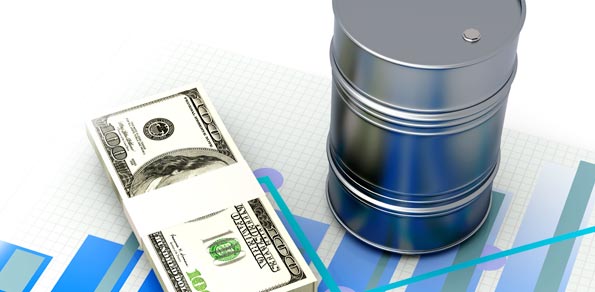Just a year or so ago, when brokers and economists were pointing that we might be facing $100.00 oil prices, everyone shook their heads and laughed. Sure oil surged up to hit $100.00 now and then but quickly fell again. With the world in recession, demand falling, consumer spending down, manufacturing collapsing, if supply and demand economics hold true, the price of oil should be tumbling.
This was before speculators were able to separate supply and demand and carve a niche for themselves pushing prices higher and higher. Along came the Arab Spring, with geopolitical turmoil, especially in the Middle East, up goes crude prices. Crude did surge, especially with Libya, but investors and speculators quietly, pushed the prices higher during the crisis. As the crisis subsided, prices did not.
Even with assurances from OPEC nations that supply would be readily available speculators used the Iranian embargo to hold prices at ransom. Concerns are now mounting over oil, as the price of a barrel of Brent crude, London’s benchmark oil, has moved back into the $120 range over recent months. Although it’s far shy of the $147 record set in 2008, it’s still high enough to raise eyebrows.
A new study by Credit Suisse analysts, cheerily titled How Worried Should We Be? mentions:
[quote]As the price of Brent oil has increased, for good reason the price of oil has challenged Greece as the tail risk de jour in financial markets[/quote]
The general view is that the oil price is being driven by the supply story at the moment, particularly the interruptions to Iran’s output as it tussles with the West over its nuclear program. The Credit Suisse team thinks that while Iran is playing a part, it is less of a price driver than thought, arguing that the rise in the oil price is more about the market’s tight fundamentals.
On the demand side, emerging markets are proving resilient and the West’s developed economies seem to be bottoming out.
Meanwhile, the last two years have seen companies run down what were large inventories of oil, while growth in supply has not made a strong start to 2012, despite Libya starting to export oil again following the turmoil seen there last year.
Put simply, there is not much oil readily available to the market to provide a buffer to a shock to supply. The fear is that oil prices would surge if there were another supply disruption or supplies from Iran plummeted in the grip of tightening sanctions.
If so, what would happen? A high oil price tends to slow growth, as it makes the cost of doing business and daily life higher for both companies and the consumer – you can think of it as an extra tax levied on their activities. In the US, every 1 cent rise at the gasoline pump is thought to add slightly more than $1bn to US households’ collective gasoline bill, assuming they don’t cut back on their driving.
The inflationary effect can be so strong that a high oil price in the long-term can prove deflationary, such is its negative impact on an economy’s growth.
Of course, some countries and companies benefit from rising commodity prices, as they enjoy higher revenues. The problem is that the countries that would benefit have generally already rebounded strongly. These are the emerging economy powerhouses such as Saudi Arabia, Brazil and the like, although Canada and Australia are the Western exceptions to the rule. They have little scope for output to expand and many are already using policy tools such as higher interest rates to try to keep growth on a safe and sustainable pace.
Meanwhile, the oil price rise would hit consumers hard in those economies in a fragile state, such as Japan and the US.
In still simpler terms – if it arrives any time soon, an oil price spike would hurt more than it generally should. The minutes of the last Federal Reserve FOMC meeting put gold bugs in a spin last week. They noted that further quantitative easing would happen only if US economic growth slowed or inflation remained below 2pc. The dollar rose and gold fell.
This means the prospect of QE3, which would be bullish for the gold price, is now lower. The comments appeared to run against what Ben Bernanke, Fed chairman, had said in a speech two weeks ago, which the market saw as increasing the likelihood of QE3.
Once again, bankers and financiers are looking at the central bank and monetary easing for profit situations, which invalidates the reason for the Fed to offer QE3. Many of these bankers and brokers are becoming an impediment to recovery; these speculators are starting to become financial terrorists.





